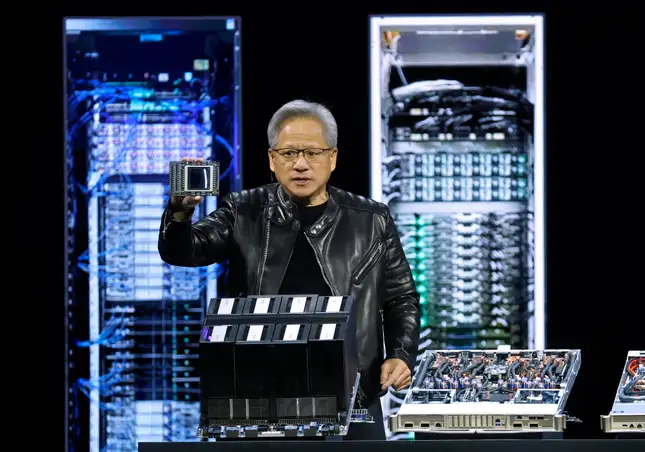Following Nvidia’s announcement that it will lose an additional $5.5 billion due to stricter U.S. government regulations on the export of computer chips used for artificial intelligence, shares of computer chipmakers fell on Wednesday.
The government informed the company that its H20 integrated circuits and others with comparable bandwidth would be subject to the licensing requirements for the “indefinite future,” according to the company, which announced Monday that it will manufacture its artificial intelligence super computers in the United States for the first time. The government said that the measures addressed the potential that the products “may be used in or diverted to, a supercomputer in China,” according to a regulatory filing from Nvidia.
In early trading on Wednesday, shares of rival chipmaker Advanced Micro Devices and Nvidia both dropped almost 6%. The export restrictions may lead to a charge of almost $800 million in “inventory, purchase commitments, and related reserves,” AMD stated in a regulatory filing on Tuesday.
On Wednesday, the Commerce Department announced that its new export license regulations apply to AMD’s MI308 and Nvidia’s H20 CPUs “and their equivalents.” In order to protect our economic and national security, Commerce stated that it is “committed to acting on the President’s directive.”
Asian tech behemoths also experienced significant drops. In Tokyo, shares of testing equipment manufacturer Advantest plummeted 6.7%, Disco Corp. plunged 7.6%, and Taiwan’s TSMC slid 2.4%. Sen. Elizabeth Warren encouraged Commerce Secretary Howard Lutnick to ban exports of Nvidia’s H20 and other cutting-edge AI processors to China, which prompted the announcement of the new controls.










